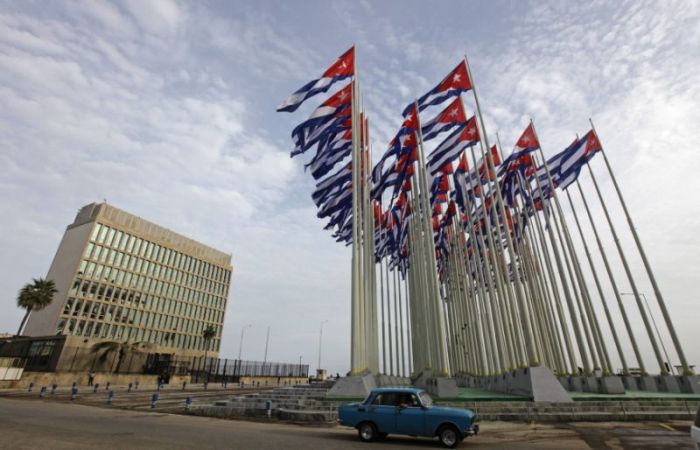
People in the United States are against Donald Trump’s latest move on Cuba and have expressed themselves in this sense
Numerous voices in the United States have spoken in the last hours against the decision of the US State Department to reduce the number of diplomats in Cuba after the alleged attacks on personnel of that legation.
“Whoever is doing this is obviously trying to disrupt the normalization process between the United States and Cuba”, said U.S. Senator Patrick Leahy about the alleged ‘sonic attacks’ against U.S. diplomats in Cuba, which prompted the Trump Administration to reduce the diplomatic staff at the U.S. embassy in Havana by 60%.
Leahy, a Democrat who favors normalization, suggested the attacks may be an attempt to undermine this process.
“Someone or some government is trying to reverse that process”, Leahy said in a statement.
The U.S. senator for Vermont recalled that neither the U.S. nor Cuban governments had been able to identify what caused the incident or who was behind it. He stressed: “We must do all we can to solve this mystery so that our embassy personnel can safely return as quickly as possible”.
Meanwhile, Bert Hoffman, a Latin American expert at the German Institute of Global and Area Studies in Hamburg, Germany, suggested Washington’s decision may have been motivated by Trump’s desire to pursue a tougher policy with the neighboring Caribbean state.
Trump in June vowed to partially roll back the detente with Cuba agreed by his Democratic predecessor, Barack Obama.
“The incident seems just a pretext to toughen U.S.-Cuba policy”, Hoffman said.
The analyst said the “de facto visa restrictions” resulting from the suspension of normal visa operations could call into question the U.S.-Cuban migration accord hammered out in the 1990s under which the United States grants 20,000 visas per year to Cubans who want to live in the U.S.
 Escambray ENGLISH EDITION
Escambray ENGLISH EDITION





Escambray reserves the right to publish comments.